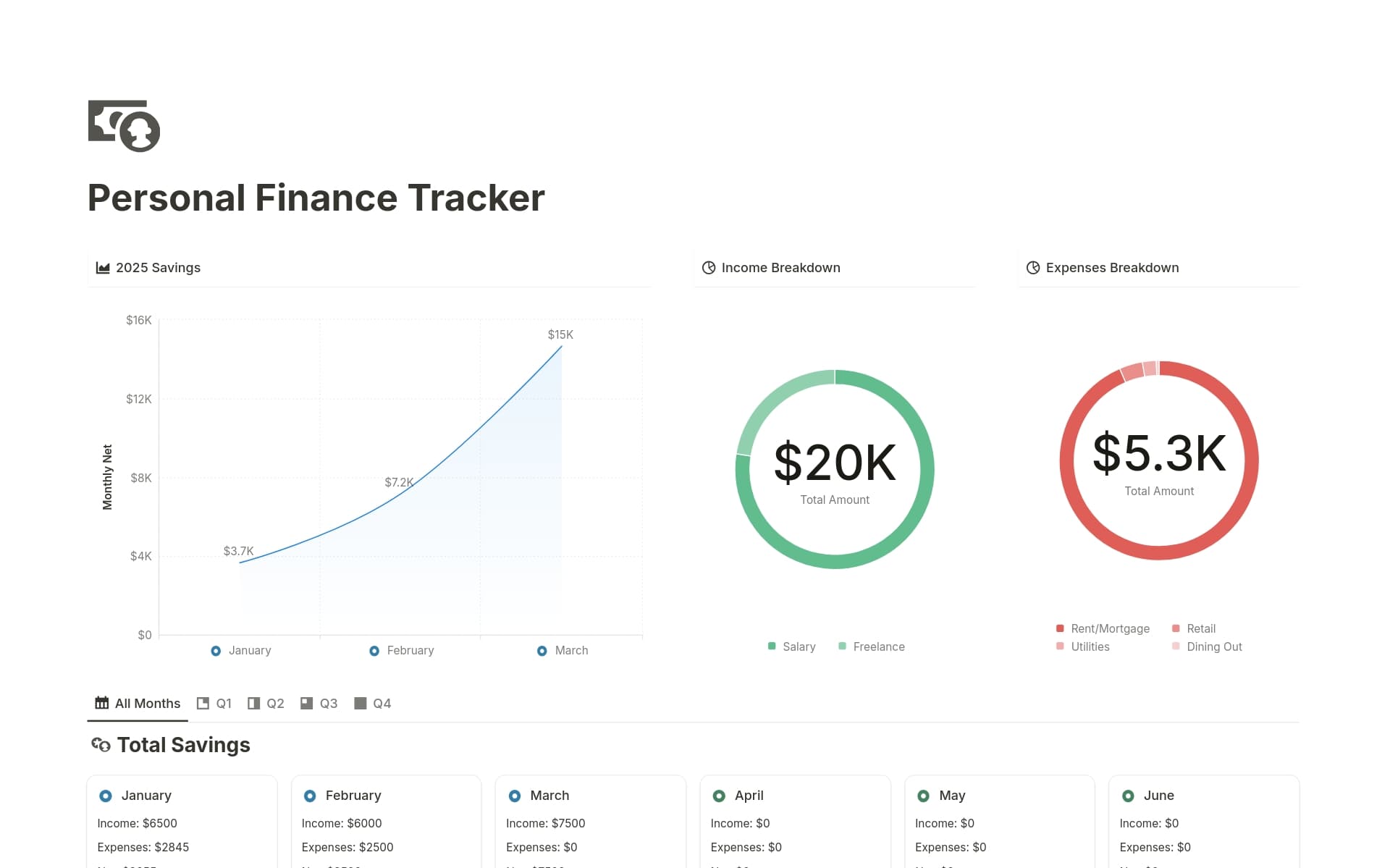Individual Check-ins are essential for maintaining clear communication, tracking progress, and fostering personal development. They provide a structured opportunity to reflect on achievements, set goals, and address challenges. An Individual Check-ins Notion template can streamline this process, ensuring that each check-in is productive and that no important points are missed.
Before you start crafting your own Individual Check-ins system, take a look at these Notion templates below to simplify the process and enhance the effectiveness of your check-ins.
What Should Individual Check-ins Templates Include?
Choosing the right Individual Check-ins template in Notion can significantly streamline the process of monitoring personal progress and reflections. Here are key components to look for:
Goal Tracking: The template should have a dedicated area for setting, reviewing, and updating short-term and long-term goals. This helps in keeping your objectives clear and actionable.
Regular Reflection Prompts: Look for templates that include prompts for daily, weekly, or monthly reflections. These prompts can guide you to think critically about your progress and areas for improvement.
Integration Capabilities: A good template should seamlessly integrate with other Notion tools or external apps to sync data like calendar events, task lists, or project milestones.
Customizability: Ensure the template is flexible enough to be tailored to your specific needs and preferences, allowing you to add or modify sections as your goals evolve.
Selecting a template with these components will not only help in maintaining a clear vision of your goals but also enhance your productivity and personal growth.
What Should Individual Check-ins Templates Avoid?
Choosing the right Individual Check-ins template in Notion can greatly enhance your productivity and clarity in personal or professional settings. However, some features can detract from the template's effectiveness. Here are three key components to avoid:
Overly Complex Layouts: Templates with too many sections or complicated navigation can lead to confusion rather than clarity. Opt for simplicity to keep your check-ins straightforward and efficient.
Non-Customizable Fields: Avoid templates that don't allow you to modify fields. Flexibility is essential as your needs might change over time, and the ability to adapt your template is invaluable.
Generic Content: Steer clear of templates that include too much generic or placeholder text. These can be cumbersome to edit out and might not meet your specific check-in needs.
Remember, the best template is one that you can tailor to fit your unique workflow and goals, enhancing your ability to track progress and reflect effectively.







